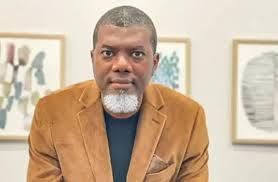Thomas Nast, the famous American cartoonist, created the political symbols of the Elephant and the Donkey, respectively, for the Republican Party and the Democratic Party in the United States of America.
Even before that time in the late 19th century, the use of political symbols has been an enduring concept dating back to the Middle Ages.
As a matter of fact, the Swastika, which became known as the symbol of Adolph Hitler of the then Nazi Germany, is renowned to have a much older history than the Nazi Movement.
For centuries, the Swastika, which literally means ‘good fortune’ had been a symbol of nationalism for many civilizations before it got adopted by Hitler, who made it become the symbol of hate and outlaws.
The symbol of the broken shackles popularized by the Statue of Liberty represents an expression of freedom from slavery and oppression into a world of human liberty and unfettered access to the rights of the individual.
The broken shackle has remained a symbol of the free world and has become the nominal feature for the preservation of human rights and equality.
The British Broadcasting Corporation (BBC), in its October 2014 documentary titiled: “How the world loved the Swastika – until Hitler stole it,” said: “In the Western world, the swastika is synonymous with fascism, but it goes back thousands of years and has been used as a symbol of good fortune in almost every culture in the world.”
The broken shackle, which has long been adopted as a symbolism for supporters of President Bola Tinubu sadly, enjoys the same fate as the swastika in the reckoning of Nigerians today.
For Nigerians, the broken shackle is no longer about freedom and human rights. It is the very opposite of it.
President Tinubu in a campaign soapbox in Ogun State where he made the infamous Emilokan remarks, which is a selfish and arrogant ownership claim to power, has since made the broken shackle a symbol of oppression and political rascality.
During the 2023 presidential campaign and up till the early days of the Tinubu administration, his supporters were proud of adorning the broken shackle symbol on their caps in avid imitation of President Tinubu – a fad that soon became known as the Emilokan caps.
But today, the reality is that no one goes about wearing the Emilokan caps again for the simple reason that it has become the symbols of oppression and a sore source of embarrassment to the supporters of President Tinubu.
Supporters of the President are held together by the belief that he has the credentials of a democrat who, if given the chance to leadership, will use the opportunity to protect human rights and freedom. They also believe in his ability to create shared prosperity by improving the national economy.
The long-held theory that the Tinubu’s statecraft gave birth to the prosperous Lagos economy further oriented his supporters to see the possibility of Tinubu’s administration as the making of a prosperous Nigeria.
Like members of the Third Reich that had an over-inflated appeal to German nationalism and race purity, Emilokan supporters in Nigeria too, soon began to see an appeal to the ideal of Chief Obafemi Awolowo in the person of Asiwaju Bola Tinubu.
But now, it is clear to all that the broken shackles personality symbol of Bola Tinubu is not about freedom from oppression but about a fascist style control of state powers.
Everyone now knows that Emilokan is not about shared prosperity for all but about a rabid appropriation of state assets to personal ownership.
Everyone now knows that Tinubu didn’t build Lagos. Rather, Tinubu built his wealth through the sweat of Lagosians.
It is also clear for everyone to see that Tinubu is not Awolowo and that all the years of imagining himself as a progressive has ended up as an iconic political impersonation fraud of grand proportions.
The defeat of the German army led to the swastika becoming an item never to be displayed anymore in the public space. So, too, has the Emilokan caps become relics of political deception and disappointment in the wardrobes of those who used to wear it. Even the once-eager vendors who proudly displayed the Emilokan caps at bustling traffic lights and strategic street corners now find themselves burdened by them. What was once a prized symbol of political fervor has become an unwanted relic, gathering dust as no one bothers to ask for them anymore. The caps, once seen as a beacon of hope and power, have now turned into silent reminders of promises unfulfilled, leaving these sellers with a product that has lost its allure and meaning.
Shaibu is Special Assistant on Public Communication to Atiku Abubakar, Vice President of Nigeria (1999-2007) and Presidential candidate of the Peoples Democratic Party (2023).





























